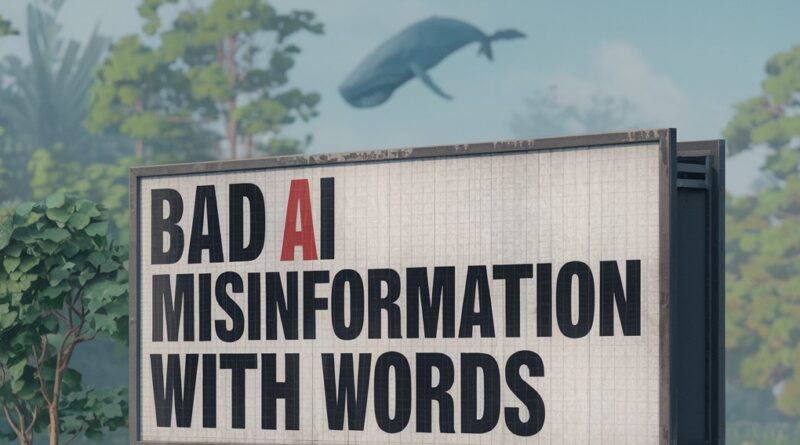Teens wary and aware of online content with AI, study shows
With so much content on the Internet, worries have grown over making the distinction between what is true and false, especially with the increasing prevalence of artificial intelligence (AI). A recent study surveyed teens on their experiences with online content, fake and AI-generated, and the effects of its impact.
Held by Common Sense Media (CSM), a non-profit organization, the study’s report focused on five key findings related to the impact and future handling of AI. Teens were initially asked about their specific interactions with fake and AI-generated content, revealing that 35% of teens reported being misled by such content.
When asked how AI will affect their ability to trust the accuracy of information online, 35% believed AI will make it harder. Additionally, 68% of 403 teens who had seen images and videos that were real yet misleading report changing how they assess the accuracy of content online. The report made note of this apparent skepticism shown by teens on AI, and built upon it in other key findings.
“I think AI is really driven by popularity and who’s clicking what,” said English teacher Jennifer Clyde. “In maybe five years, it’ll be something we can incorporate into how we teach, write, and things like that. For now, we just have to be like ‘Whoa, make sure you’re double-checking.’”
The third key finding was on whether 452 teens admitting to using generative AI for school had found problems with its output. Problems were reported to have been noticed by 39% of teens, however 36% reported not noticing any. The report concluded that the finding highlights an importance to help teens critically think about AI content through the necessary tools and skills, and also overall improving the reliability of AI.
“I’ve seen decent answers with [Google’s Gemini] on general topics like math. It’s helped me a good amount,” said junior Caden Chin. “But with lesser known topics like current issues, it really shows it’s not truly, 100% reliable.”
AI has gained enormous traction since the launch of ChatGPT, just as tech companies intended. However, as it continues to expand, 47% of teens reported having little to no trust in tech companies to responsibly use AI. On whether major technology companies could be trusted to care about their well-being and mental health, 64% reported they’d hardly ever or have some trust in them.
A majority of teens, 74%, are in favor of safeguards and transparency to manage AI use. AI-generated content being watermarked for being made by AI was one safeguard 73% of teens rated as somewhat or very important. “I think it’s fine if like YouTubers get inspiration using AI, but the vast majority who use it just make AI YouTube shorts to get quick views,” said senior Alex Chen. “It takes away from YouTube’s platform of always being innovative.”
The full report, titled “Teens, Trust, and Technology in the Age of AI” can be found at commonsensemedia.org, along with a similar study on the general impact of AI on teenagers so far, also organized by CSM. Both were based on sampling done between March and May 2024, and in today’s rapidly changing world, this data may already be irrelevant.


Fantastic article. We have to crack down in AI strongly because of he misinformation that is spread across the internet.
This was such a well written article! AI is truly something that is having a large impact on our society today and I hope it can only grow for the better and to be beneficial for all of us in the future.